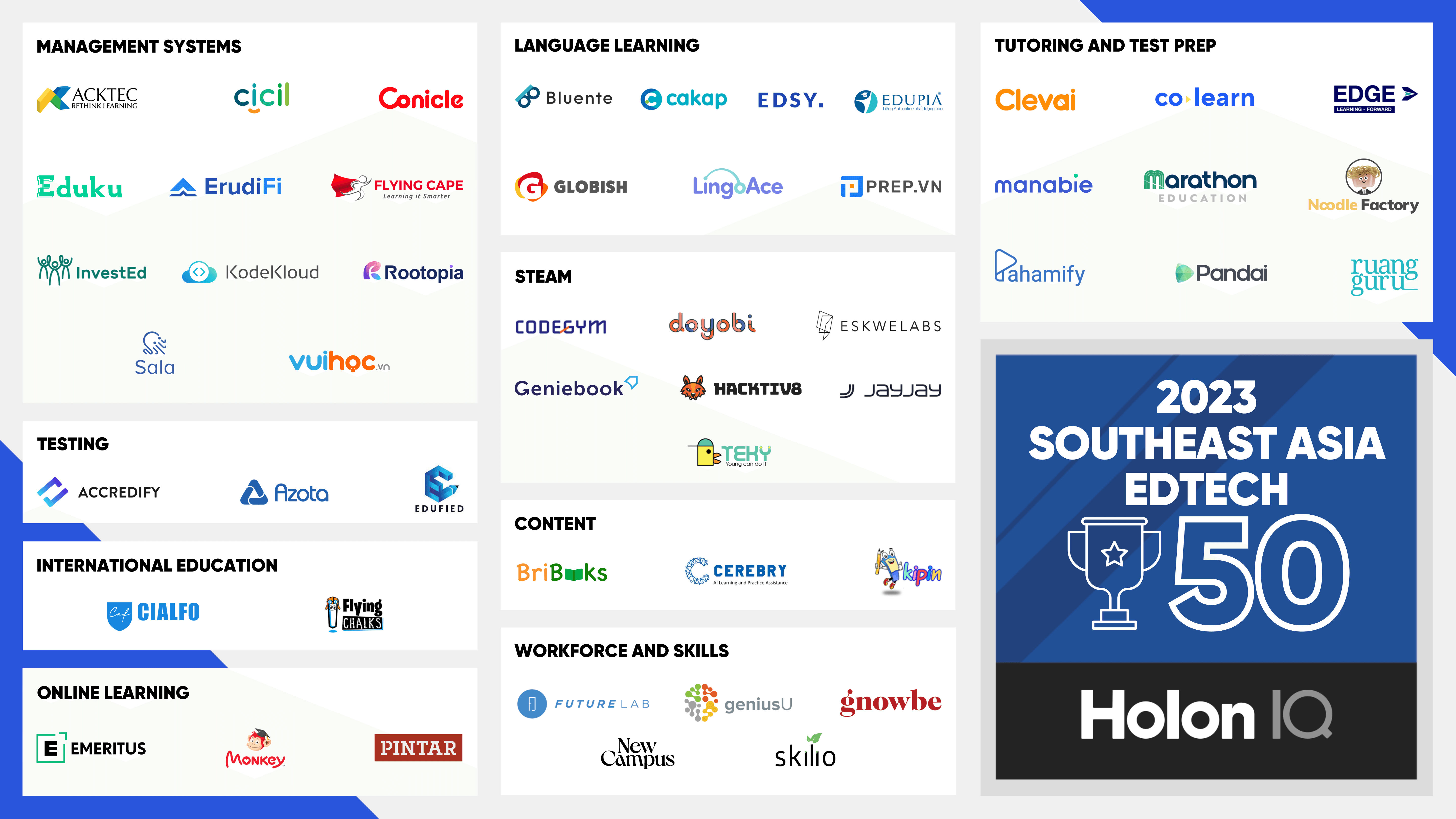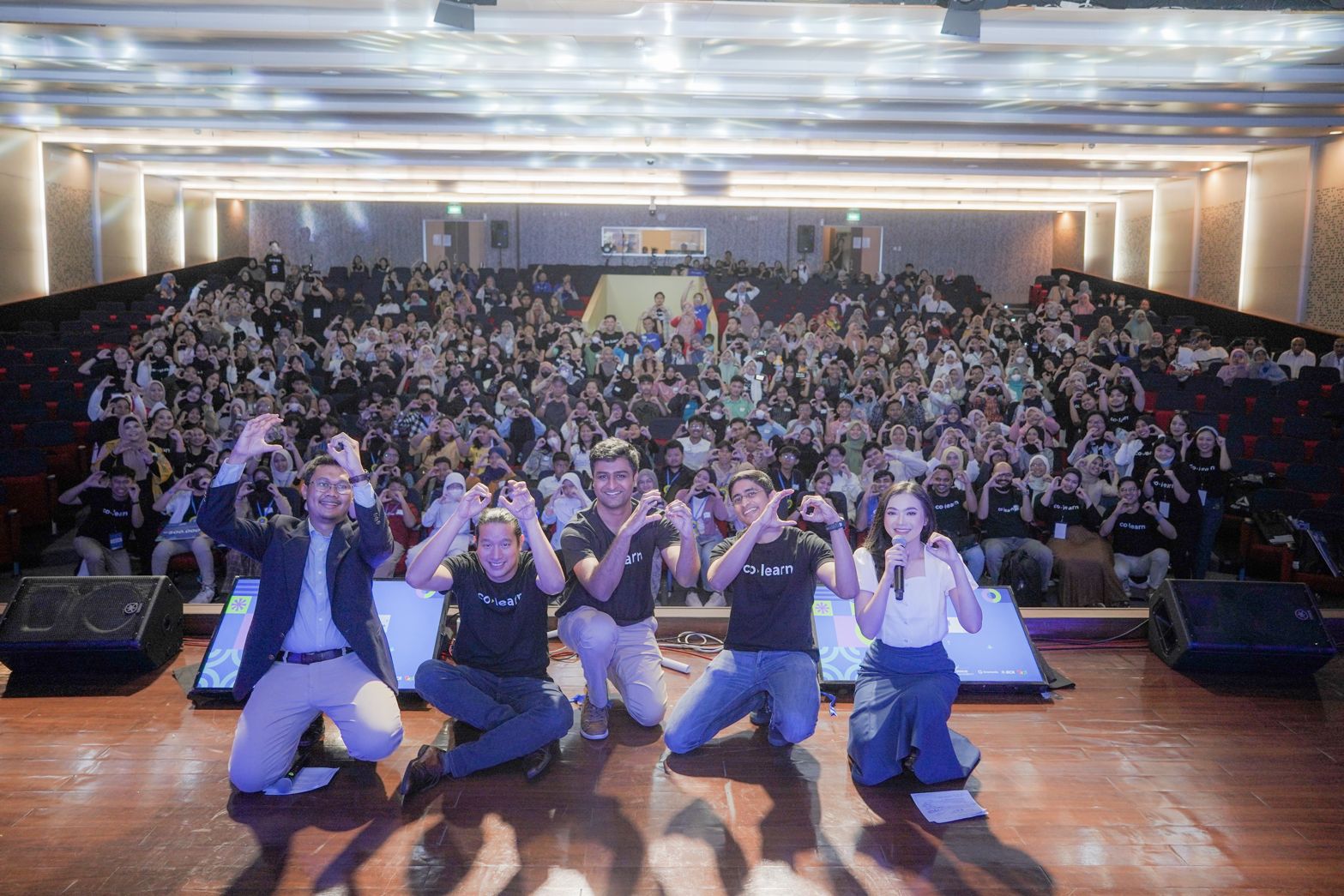The Different Fate of Edtech Startups After the Pandemic
Seeing the development of K-12 startups (Ruangguru, Zenius, CoLearn) and non-K-12 (Cakap, PINTAR) anticipate post-pandemic conditions
Use EdTech in the national education system, in general, is a form of adaptation to disruption and a form of encouragement so that the education system becomes more resilient.
“We need to take the lessons from distance learning and apply them to the formal education system. "The pandemic has shown that our education system is very vulnerable and there needs to be some form of adaptation," explained Center for Indonesian Policy Studies (CIPS) researcher Latasha Safira, quoting from CIPS website.
The results of a survey conducted by CIPS in 2021 show that teachers use various products and services EdTech such as Learning Management Systems (e.g. EdModo and Canvas) and interactive platforms (e.g. Kahoot and Menimeter) to facilitate distance learning over the past 18 months.
Investors are responding to high adoption EdTech during the pandemic through funding injections for startups in Indonesia. The following data is quoted from Tech in Asia:
- 2019 was the year with the largest total funding value of $166,42 million across six investment deals over the last eight years;
- 2020 saw the highest increase in deals with a total of 18 deals, but in nominal terms it fell to $77,05 million;
- 2021 saw a decrease in deals and nominal investments, to 11 deals worth $11,35 million;
- 2022 will see an increase in deals and nominal investments, to 14 deals worth $18 million.
How about this year? According to compiled data DailySocial.id, only four startups were recorded EdTech which announced funding throughout 2023.
| Startups | Funding | Time |
| Competent | C1 Series (undisclosed) | April 2023 |
| Recording | Early stage (undisclosed) | May 2023 |
| Lister | Early stage (undisclosed) | June 2023 |
| SoLeLands | Early stage (undisclosed) | July 2023 |
This downward trend in investment does not only occur in Indonesia, for example India, which also has a large population. Based on data from Trackr, funding in the sector EdTech declining to $2,43 billion in 2022, with just 159 deals compared to 319 deals in 2021 worth $4,7 billion and 222 deals in 2020.
According to the statistics obtained CNBC-TV18.com, as many as 7.000-9.000 employees were affected by layoffs at the company EdTech India throughout last year. Byju, Unacademy, Vedantu are some of the startups EdTech who took this step. All three are startups EdTech which plays in the K-12 segment.
What happened in India also happened in Indonesia. Two big players in the K-12 segment had to let go of thousands of employees being laid off since last year. Ruangguru cut hundreds of employees, temporary Zenius slashed about 800 people.

How EdTech K-12 survives
Well Ruangguru nor Zenius did not respond to their strategy after massive efficiency. Not much new information has been announced recently. Here's the summary:
- In July 2023, Ruangguru announced the continued expansion of the Brain Academy offline tutoring location. Since its introduction in 2019, it is claimed there are more than 200 branches spread throughout Indonesia. The company's financial condition has also improved, after carrying out many efficiencies on various fronts. Presented in 2021, Ruangguru has pocketed a profit of IDR 55 billion compared to the previous year which recorded a loss of IDR 18,6 billion.
- In June 2023, Zenius announced a comprehensive audit of 264 Primagama branches to ensure that each branch has the same standards and quality covering all aspects of the business. From the results of the audit, a small number of branches were unable to meet the set standards. These branches were given time to make improvements, but some of them were unable to fulfill the requested improvements within the specified time limit. Therefore, Zenius decided to end cooperation with these branches. On the other hand, most branches also decided to end cooperation voluntarily due to differences in vision with Zenius. The company opens opportunities for anyone who wants to invest in the world of education by becoming a New Primagama license holder through a franchise system.
Here it can be seen that both of them have the same strategy, namely strengthening their offline tutoring as a focus area after conditions gradually return to normal and implementing the concept of blended learning. So does online tutoring still have positive prospects?
Just focus on online tutoring
To answer that question, DailySocial.id contacted the two co-founders of CoLearn, namely Abhay Saboo (CEO) and Marc Irawan (COO). This startup was founded in August 2020 with an initial feature that allows students to ask more than 5 million questions related to mathematics, physics and chemistry per month.
All their questions were answered by Tanya, an artificial intelligence (AI) technology made by CoLearn. In a survey, 80% of students saw an improvement in their grades after using CoLearn. Quickly, CoLearn reached 3,5 million students using this feature.
The Ask feature is now a complementary service on CoLearn. The company only optimizes the ranking of search words on Google and YouTube search engines so that they appear on the top page. This step was taken in order to adapt the habitual pattern of Indonesian people who search for all information via the Google search engine.
Not only helping students do their homework quickly, CoLearn launched online tutoring that focuses on three subjects from grades 5 to 12. Each class lasts for one hour via the site or application.

“CoLearn's focus is not on the Ask feature, but online tutoring. For us, because we are relatively new players, we are different because we started during Covid-19. "So the expectations are not very visible from before and during Covid-19," said Abhay.
Although he did not specify specific numbers, Abhay admitted that the acceptance of online tutoring at CoLearn was well received and received a positive response, especially after CoLearn made a new policy in July 2023. Among other things, offering a new price of IDR 95 thousand which can be paid per month and a money back guarantee. 100%.
“Previously you paid per semester, now you pay per month. This money back guarantee in the first month after the child is not suitable, [because] there are some parents who have negative or positive perceptions [of the new service] so you can try it first. We offer people's prices, it doesn't have to be millions because of us asks (confident) in our [online tutoring] product," added Marc.
The largest users of this online tutoring are students in grades 5-9, then high school students make up the rest. From the start, CoLearn was not designed to prepare for final exams, but rather to build fundamentals through teaching about the basic concepts of a problem.
This step is in line with the company's big mission which wants to help Indonesia improve its ranking in PISA (Program for International Student Assessment), a benchmark for the quality of education in a country. In the 2018 survey, Indonesia was ranked 72nd out of 77 countries. Mathematics scores are ranked 72nd out of 78 countries. Meanwhile, the science score is ranked 70th. This figure has tended to stagnate for the last 15 years.
Abhay said that his party is optimistic about the prospects for online tutoring remaining green in the future, even targeting to immediately make a profit by the end of 2024. This ambition will be carried out with the right strategy, only focusing on improving online tutoring so that it becomes more popular.
“Companies that don't focus on doing many things will cost money to try and try. Meanwhile, to make a profit, you need returning customers. To do this, you have to do something very, very well and you need focus to continue to improve it. "We want to focus on being very good at just one thing [online tutoring]," he said.
Marc added that entering the offline tutoring area requires you to have strong abilities in your field because the challenges are very different from offline tutoring. There are strict standardized controls for building maintenance, security, class structure, staff attitude, teacher arrival times, and many other small things that are important to always maintain.
“We focus on online [tutoring] because we want to improve the quality of teachers. If it's offline, teachers here are limited due to geography, but online we can decide that. We believe a service "Education relies on the quality of teachers, if there were no limitations it would be much better."
Non-K-12
Cakap and PINTAR are two non-K-12 edtech players that are thriving today. Both play in the skills course development segment targeting online-based individuals and corporations.
When contacted DailySocial.id, Cakap Co-founder and CEO Tomy Yunus revealed that as of the third quarter of 2023, Cakap is able to maintain positive growth trend with an increase in the number of users and revenue of more than 100% year-on-year, and posted positive EBITDA.

As much as 50% of Cakap's total revenue comes from the Language business pillar, then the rest comes from the Business and Upskill pillars (vocational and skills classes, such as hospitality, offices and entrepreneurship). Throughout the first semester of 2023, English courses are still the biggest contributor. The users are of productive age, around 20-29 years old spread across Jabodetabek, Bandung and Lampung.
"The demand for education continues to grow, reflected in Cakap's performance which continues to grow with innovations that are relevant to market interests, both during and after the Covid-19 pandemic," said Tomy.
During the pandemic, Cakap prioritized easy access to education and the convenience of online learning through Cakap Upskill. After the pandemic, companies adapted to implement methods blended learning. This is the reason behind the presence of Cakap Kids Academy for students aged 4-12 years this year.
In addition, the company develops educational solutions hyperlocal and relevant in terms of industrial needs in each region, also supported by affordable prices. In order to support workforce absorption, Cakap is more responsive to the situation in the industry. For example, with the tourism industry booming again, Cakap provides foreign language classes to support it.
"In addition to providing certificates for all courses, Cakap is also developing a business unit in the form of a career hub, which can be a solution for job seekers and companies in finding the right talent."
PINTAR Co-founder and CEO Ray Pulungan said that before and after the pandemic, PINTAR did a number of things business adjustments. Before the pandemic, PINTAR focused on offering OPM (Online Program Management) services for private universities in the spirit of opening up affordable access to college. Until early 2020, 15 campuses had collaborated and held more than 20 online lecture programs and blended learning.
“Entering 2020, when the pandemic occurred, the world of work experienced drastic changes. [..] We responded to this change by presenting a solution in the form of providing online skills courses [..] for reskilling. "During the pandemic period, more than 1 million people have received the benefits of skills training through PINTAR," said Ray.
He continued, "Currently, PINTAR is developing as a workforce development platform (workforce development platform), [..] work with companies to provide training and recruitment for workers, suppliers and local communities – including vulnerable and underrepresented groups.”
Based on business contribution, PINTAR has four product pillars: PINTAR Skills (skills training), PINTAR Degrees (higher education), PINTAR Enterprise (employee learning and development), and PINTAR Opportunity (placement of individuals into the job market and opening market access for MSME owners) .
More Coverage:
The combination of these four segments allows the company to serve the diverse training and development needs of both organizations and individuals. It is claimed that most of its business is now focused on the B2B market, with a contribution of around 70% of the company's total business.

Ray said that the main challenge experienced by players like PINTAR is how to stimulate the individual's intrinsic motivation to learn and develop. This low motivation is caused by two things: 1) a lack of understanding among participants regarding the benefits that will be obtained after participating in the training, 2) things that have been learned in the training may not necessarily be applied optimally in the world of work.
"This mismatch further reduces people's perception of the importance of skills training," he added.
Tommy added, despite the big challenges, the world education market share in this country is very large. The opportunities are many, there are new verticals that can be developed. This will be carried out by Cakap in accordance with expertise-New.
"Every expansion we carry out must make a positive contribution to the company, so that it can be maintained and can even quickly stop less efficient businesses as early as possible."
These two companies are part of the government's partners for the Pre-Employment Card Program. Tommy said that it had been four years since the company had joined as a government partner, the impact that was felt was that users gained new skills that could be applied to work Existing, or create new jobs. There is no mention of the contribution of this business to Cakap's total business.
Meanwhile, Ray said that the contribution of the Pre-Employment Program to the total PINTAR business was around under 10%. Even though it is not dominant, the role of this program is still essential because it supports the government's efforts to massively reskill the workforce. “The positive effect can be seen in marginalized and underrepresented segments of society. "In the annual report, 44% of beneficiaries came from the poorest 40% of households in Indonesia," he said.
He continued, "Even though in the future this program may experience changes because the wheels of innovation will continue to turn, its main function is expected to remain the same, namely as a catalyst for empowerment and skill development of the workforce in Indonesia."
Sign up for our
newsletter
 Premium
Premium
